Periodontics
What is periodontal disease?
Periodontal diseases are mainly the result of infections and inflammation of the gums and bone that surround and support the teeth. Periodontal disease has two categories and is a progressive disease. In its early stage, called gingivitis, the gums can become swollen and red, and they may bleed. In its more serious form, called periodontitis, the gums can pull away from the tooth, supporting bone can be lost, and the teeth may loosen or even fall out.
According to the CDC, 47.2% of adults aged 30 years and older have some form of periodontal disease. Periodontal disease also increases with age; 70.1% of adults 65 years and older have periodontal disease. Whether you have mild periodontitis or a more advanced case, our team is here to help. Contact our office today to learn more about our periodontal services and schedule your next visit!
Contact Us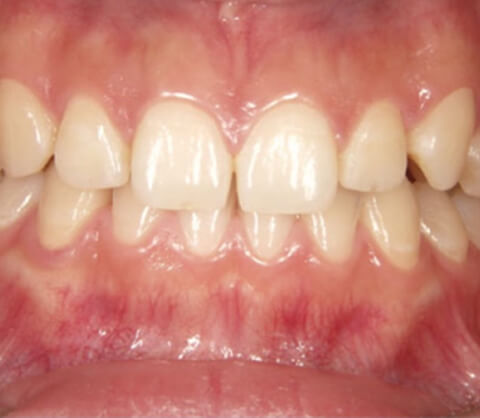
Normal
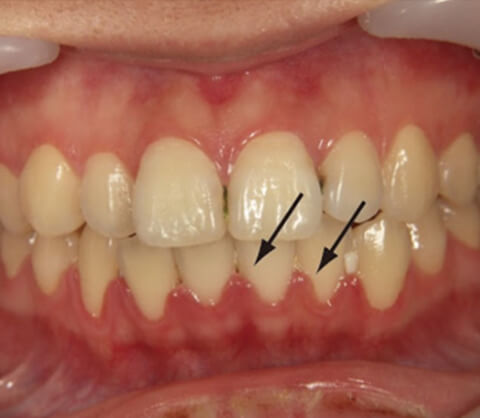
Mild
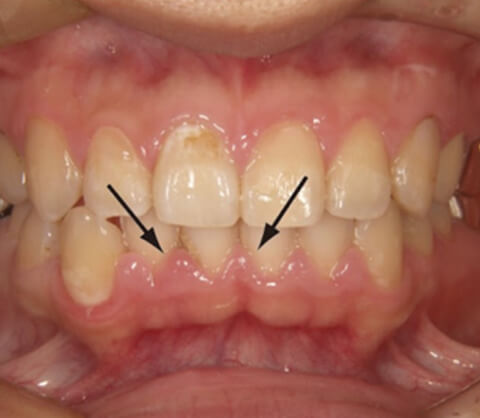
Moderate
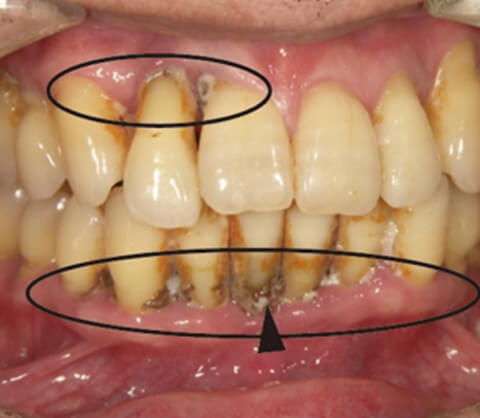
Severe
What puts me at risk of developing periodontal disease?
Anyone can develop gum disease, but some factors that may increase your risk include:
- Poor Oral Hygiene: Caring for your teeth and gums every day helps protect against gum disease. This means brushing your teeth every day for two minutes and cleaning between your teeth daily with floss and/or a water flosser.
- Tobacco Use: Patients who frequently smoke cigarettes or chew tobacco increase their risk of developing gum disease, as it negatively affects their immune systems and lowers their ability to fight infection.
- Illnesses that lower your ability to fight infection: Some conditions like diabetes, osteoporosis, or cancer and cancer treatments can increase the risk of gum disease.
- Mouth Breathing: Mouth breathing during the day or night can dry out your saliva and change the bacterial makeup of your mouth, increasing your risk of developing periodontal disease.
- Medications: Some medications may affect your gums, like those used for high blood pressure or heart conditions. Please let us know what medications you are taking. This allows us to provide you with a whole health approach and identify any risks.
- Pregnancy: During pregnancy, a woman can become more sensitive to the bacteria that cause gum disease. This is typically due to hormonal changes, and we can work toward a solution to improve this during pregnancy.
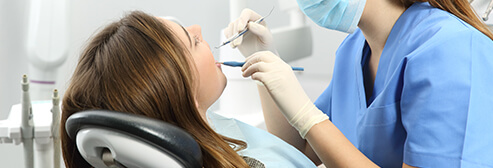
Treating Periodontal Disease
The bacteria associated with periodontal disease has been linked to systemic health problems such as heart disease, diabetes, pregnancy complications, rheumatoid arthritis, chronic kidney disease, cancers, and dementia, which is why it's so important to seek high-quality treatment as soon as possible.
Our team at Columbia Dental Groups treats every patient as an individual. Although periodontal disease is a common adult disease, each patient may have a different root cause. Below is an example of the therapies we recommend for our patients. Many of these therapies work best in conjunction. If you have any questions about the best course of action to treat your periodontal disease, please give us a call.

In-Office Treatments:
- Scaling and Root Planing
- Periodontal Maintenance
- Arestin® Antibiotic Therapy
- Orofacial Myofunctional Therapy
- Pinhole Rejuvenation

At-Home Adjunctive Treatment We Recommend:
- Oracare Mouthrinse
- Antibiotic Therapy
- Waterpik
- Oral-B IO Toothbrush
- Nasal Hygiene Therapy
In some cases, periodontal disease can be recurrent or may need a more aggressive approach to intervene. In that case, we have several great referral sources and specialists we can consult with for treatment. Contact our office today to schedule your next appointment with our Columbia dental team.
